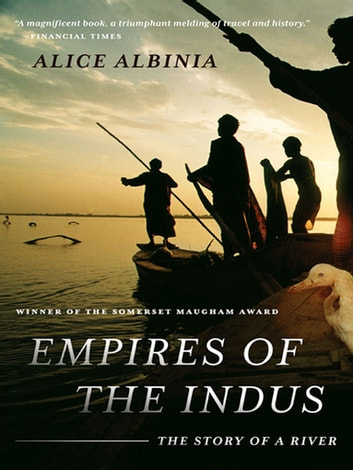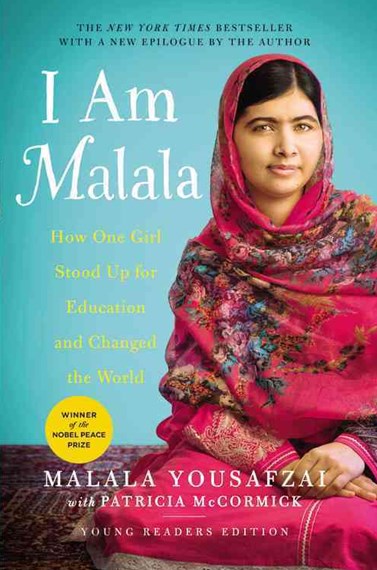Wednesday, June 12, 2024
Surprise, Kill, Vanish: The Secret History of CIA Paramilitary Armies, Operators, and Assassins ( Annie Jacobsen )
Thursday, June 6, 2024
The Long Walk to Freedom ( Nelson Mandela )
Why Nations Fail ( Daron Acemoglu and James Robinson )
Tuesday, June 4, 2024
The Mahabharata ( Kisari Mohan Ganguli )
Friday, May 31, 2024
Pakistan: Between Mosque And Military ( Husain Haqqani )
Thursday, May 30, 2024
Pakistan The Garrison State ( Ishtiaq Ahmed )
In 1947, the Pakistan military was poorly trained and poorly armed. It also inherited highly vulnerable territory vis-à-vis the much bigger India, aggravated because of serious disputes with Afghanistan. Over the years, the military, or rather the Pakistan Army, continued to grow in power and influence, and progressively became the most powerful institution. Moreover, it became an institution with de facto veto powers at its disposal to overrule other actors within society including elected governments. Simultaneously, it began to acquire foreign patrons and donors willing to arm it as part of the Cold War competition (the United States), regional balance-of-power concerns (China), and ideological contestants for leadership over the Muslim world (Saudi Arabia, to contain Iranian influence). A perennial concern with defining the Islamic identity of Pakistan, exacerbated by the Afghan jihad, resulted in the convergence of internal and external factors to produce the ‘fortress of Islam’ self-description that became current in the early twenty-first century. Over time, Pakistan succumbed to extremism and terrorism within, and was accused of being involved in similar activities within the South Asian region and beyond. Such developments have been ruinous to Pakistan’s economic and democratic development. This study explains how and why it happened.
Pakistan: A Hard Country ( Anatol Lieven )
Empires of the Indus: The Story of a River ( Alice Albinia )
Wednesday, May 29, 2024
PACHINKO ( MIN JIN LEE )
The Forty Rules of Love: A Novel of Rumi ( Elif Shafak )
HOW TO GET FILTHY RICH IN RISING ASIA ( MOHSIN HAMEED )
HOW PAKISTAN GOT DIVIDED ( MAJOR GENERAL RAO FARMAN ALI KHAN )
Monday, May 27, 2024
From MTV TO MECCA ( KRISTIANE BACKER )
In the early 1990s Kristiane Backer was one of the very first presenters on MTV Europe. For some years she lived and breathed the international music scene, quickly gaining a cult following amongst viewers and becoming a darling of the European press. As she reached the pinnacle of her success she realised that despite having all she could have wished for, she was never truly satisfied. Something very important was missing.
A fateful meeting with Pakistani cricket hero Imran Khan changed her life. He invited her to his country where she encountered a completely different world to the one she knew, the religion and culture of Islam. In place of pop and rock stars she was meeting men and women whose lives were dominated by the love of God and who cared very little for the brief glories of this world. She began to read the Quran and to study books about the faith. A few years later, after traveling more widely in the Islamic world and knowing that she had discovered her spiritual path, she embraced Islam in a London mosque. And then her real adventures began.
In this very personal memoir, Kristiane Backer tells the story of her conversion and explains how faith, despite the many challenges she faced, has given her inner peace and the meaning she sought.
Wednesday, May 22, 2024
And Then There Were None ( Agatha Christie )
The Little Prince ( Antoine de Saint-Exupéry )
A Tale of Two Cities ( Charles Dickens )
Profound human love and the most repugnant savagery, horror and redemption, a heroine and a grotesque revenger, two families with dark secrets, two cities, all in the backdrop of the bloodbath that was the French Revelation. In reading it, be prepared for the "Best of Times and the Worst of Times."
Tuesday, May 21, 2024
The Crow Eaters by Bapsi Sidhwa
At the dawn of the twentieth century in Pakistan, Freddy Junglewalla moves his family — pregnant wife, baby daughter, and Jerbanoo, his rotund mother-in-law — from their ancestral forest home to cosmopolitan Lahore. He opens a store, and as his fortunes grow, so does the animosity between Freddy and his mother-in-law. While Freddy prospers under British rule, life with the domineering Jerbanoo is another matter entirely.
This exuberant novel, full of rollicking humor, paints a vivid picture of life in the Parsee community.
Monday, May 20, 2024
Ice Candy Man by Bapsi Sidhwa
Sunday, May 19, 2024
Three Cups of Tea by Greg Mortenson
Three Cups of Tea is a memoir by Greg Mortenson that recounts his journey in building schools in Pakistan and Afghanistan. It sheds light on the importance of education in promoting peace and understanding in the world.

.jpeg)











.webp)





